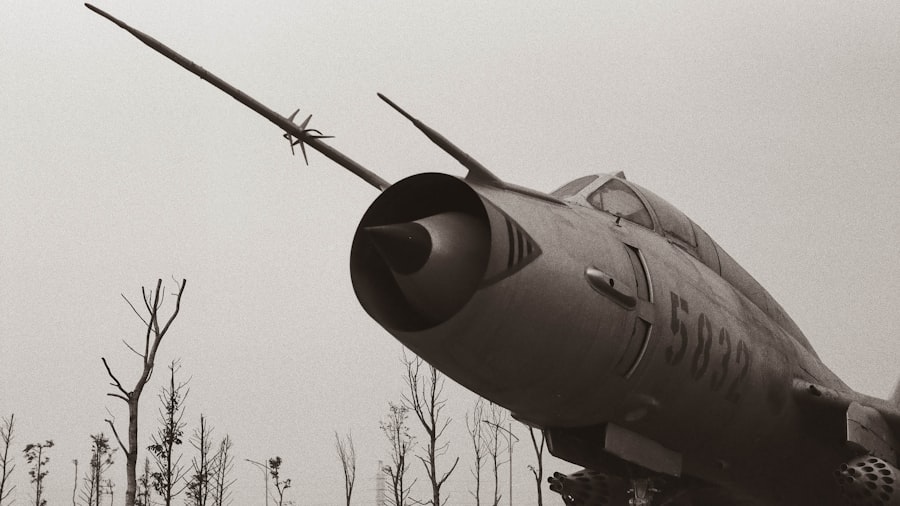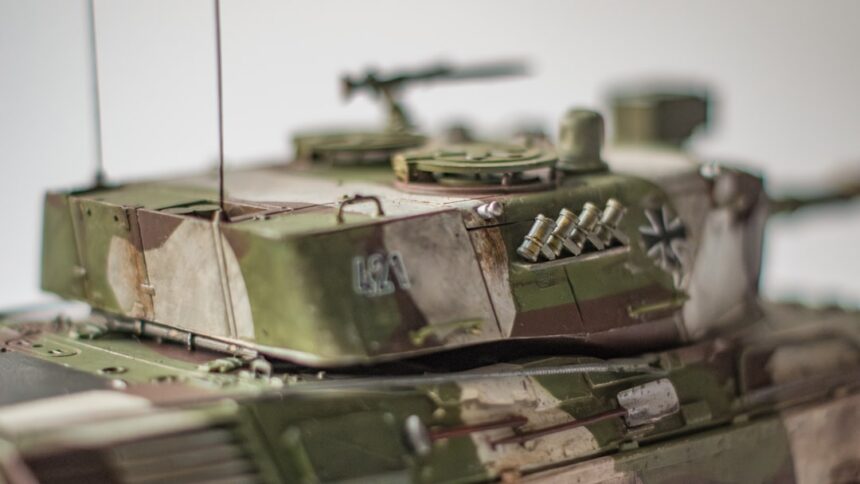Corruption has long been recognized as a significant impediment to military effectiveness, particularly in nations where governance structures are weak. In the context of the Russian military, corruption manifests in various forms, including embezzlement, bribery, and misallocation of resources. These corrupt practices undermine the operational readiness of the armed forces, leading to a decline in morale among personnel and a lack of trust in leadership.
When funds intended for training, equipment maintenance, and personnel welfare are siphoned off for personal gain, the military’s ability to respond effectively to threats is severely compromised. Moreover, the impact of corruption extends beyond immediate operational capabilities. It creates a culture of impunity where unethical behavior is normalized, further entrenching corrupt practices within the military hierarchy.
This environment not only discourages honest service members but also fosters a sense of disillusionment among those who are committed to their duties. As a result, the overall effectiveness of the military is diminished, leading to a force that is ill-prepared to face both internal and external challenges.
Key Takeaways
- Corruption undermines military effectiveness by diverting resources and compromising operational capabilities.
- Kickbacks and bribes in weapon procurement lead to inflated costs and the acquisition of subpar equipment.
- Corruption hinders military modernization efforts by siphoning funds and impeding technological advancements.
- The connection between corruption and poor quality equipment jeopardizes the safety and effectiveness of military personnel.
- The financial cost of corruption in the Russian military drains resources and undermines national security.
The Role of Kickbacks and Bribes in Weapon Procurement
Weapon procurement in Russia has been plagued by kickbacks and bribes, which have become an integral part of the process. These illicit payments often inflate the costs of military contracts, diverting funds that could otherwise be used for essential upgrades and maintenance. In many cases, officials involved in procurement may prioritize personal financial gain over the needs of the military, leading to subpar equipment being purchased at exorbitant prices.
This not only strains the military budget but also raises questions about the quality and reliability of the weapons being acquired. The prevalence of kickbacks and bribes creates a vicious cycle that perpetuates corruption within the defense sector. As officials become accustomed to receiving illicit payments, they may become increasingly brazen in their dealings, further eroding ethical standards.
This environment can lead to a lack of accountability, where those responsible for procurement decisions are not held to rigorous standards of oversight. Consequently, the military may find itself equipped with outdated or ineffective weaponry, ultimately jeopardizing national security.
The Influence of Corruption on Military Modernization Efforts

Corruption has a profound influence on military modernization efforts in Russia, stifling innovation and hindering the adoption of advanced technologies. As funds earmarked for modernization are misappropriated or wasted due to corrupt practices, the military struggles to keep pace with global advancements in defense capabilities. This stagnation not only affects the quality of equipment but also impacts the training and development of personnel who must operate these systems.
Furthermore, when modernization initiatives are marred by corruption, they often fail to meet their intended objectives. Projects may be delayed or abandoned altogether due to financial mismanagement or lack of political will. This not only results in wasted resources but also diminishes the military’s credibility both domestically and internationally.
As other nations invest in cutting-edge technologies and capabilities, Russia risks falling behind, compromising its strategic position on the global stage.
The Connection Between Corruption and Poor Quality Equipment
| Country | Corruption Index | Incidents of Poor Quality Equipment |
|---|---|---|
| Country A | 3.2 | 45 |
| Country B | 4.5 | 30 |
| Country C | 2.8 | 60 |
The connection between corruption and poor-quality equipment is starkly evident in the Russian military. When procurement processes are tainted by bribery and kickbacks, there is a tendency to prioritize cost over quality. This often results in contracts being awarded to companies that may not have the best track record or technological expertise.
As a consequence, the military ends up with equipment that is not only substandard but also potentially dangerous for personnel who rely on it during operations. Additionally, poor-quality equipment can lead to increased maintenance costs and operational failures. When soldiers are forced to use unreliable gear, their safety is compromised, and mission success becomes uncertain.
This cycle of corruption and incompetence ultimately erodes trust within the ranks and diminishes the overall effectiveness of the military. The ramifications extend beyond immediate operational concerns; they can also affect recruitment and retention as potential service members may be deterred by a reputation for inefficiency and corruption.
The Financial Cost of Corruption in the Russian Military
The financial cost of corruption within the Russian military is staggering, with billions of rubles lost each year due to fraudulent activities.
The diversion of funds from legitimate military needs not only hampers operational capabilities but also places an undue burden on taxpayers who ultimately foot the bill for these corrupt practices.
Moreover, the financial implications extend beyond immediate losses; they can have long-term consequences for national security. As resources are squandered on corrupt schemes, the military’s ability to invest in critical areas such as research and development suffers.
The Human Cost of Corruption in the Russian Military

The human cost of corruption in the Russian military is profound and multifaceted. Service members often bear the brunt of corrupt practices as they face inadequate training, insufficient resources, and substandard equipment. This not only jeopardizes their safety during missions but also affects their morale and mental well-being.
When soldiers perceive that their leaders are more concerned with lining their pockets than ensuring their welfare, it breeds resentment and disillusionment within the ranks. Furthermore, corruption can lead to a culture where meritocracy is undermined. Promotions and assignments may be influenced more by connections or bribes than by competence or performance.
This can result in a leadership structure that lacks accountability and effectiveness, further exacerbating issues within the military. The human cost extends beyond active service members; families of soldiers may also suffer as they deal with the consequences of inadequate support and resources due to systemic corruption.
The Political Ramifications of Military Corruption in Russia
Military corruption in Russia has significant political ramifications that extend beyond the defense sector itself. As public awareness of corrupt practices grows, it can lead to widespread discontent among citizens who feel betrayed by their leaders. This discontent can manifest in protests or calls for reform, putting pressure on political figures to address corruption within the military ranks.
In some cases, this pressure may lead to superficial changes that do little to address the root causes of corruption. Moreover, political leaders may use corruption as a scapegoat to deflect criticism from other pressing issues facing the nation. By focusing on military corruption, they can divert attention from economic challenges or social unrest.
However, this tactic can backfire if citizens perceive it as an insincere attempt to address systemic problems rather than a genuine commitment to reform. Ultimately, the political ramifications of military corruption can destabilize governance structures and erode public trust in institutions.
Efforts to Combat Corruption in the Russian Military
Efforts to combat corruption within the Russian military have been met with mixed results. While there have been initiatives aimed at increasing transparency and accountability in procurement processes, these measures often face significant resistance from entrenched interests within the military establishment. Anti-corruption campaigns may be launched with great fanfare but frequently lack the necessary follow-through to effect meaningful change.
One notable effort has been the establishment of oversight bodies tasked with monitoring defense spending and procurement practices. However, these bodies often operate within a framework that limits their effectiveness due to bureaucratic hurdles or lack of authority. Additionally, whistleblower protections remain inadequate, discouraging individuals from coming forward with information about corrupt practices for fear of retaliation.
Without robust mechanisms for accountability and transparency, efforts to combat corruption may ultimately fall short.
The International Implications of Russian Military Corruption
The international implications of Russian military corruption are far-reaching and complex. As Russia seeks to project power on the global stage, its reputation is increasingly tarnished by allegations of corruption within its armed forces. This perception can affect diplomatic relations with other nations and hinder cooperation on security matters.
Allies may become wary of engaging with a military that is perceived as inefficient or compromised by corrupt practices. Furthermore, corruption can impact Russia’s defense exports as potential buyers may question the reliability and quality of Russian-made equipment. If foreign governments perceive that corruption undermines the integrity of procurement processes, they may seek alternatives from other nations with more transparent practices.
This shift could have significant economic consequences for Russia’s defense industry and its ability to sustain its military capabilities.
Transparency and Accountability in Military Spending
Transparency and accountability are critical components in addressing corruption within military spending. For Russia to effectively combat corrupt practices, it must implement robust mechanisms that ensure oversight at all levels of defense procurement and expenditure. This includes establishing clear guidelines for contract awards, rigorous auditing processes, and independent oversight bodies with real authority to investigate allegations of misconduct.
Moreover, fostering a culture of transparency requires political will from leadership at all levels. Leaders must prioritize anti-corruption efforts as part of broader governance reforms rather than treating them as isolated initiatives. Engaging civil society organizations and encouraging public participation in monitoring defense spending can also enhance accountability and build trust among citizens regarding how military resources are allocated.
The Future of Military Corruption in Russia
The future of military corruption in Russia remains uncertain as various factors come into play. While there is growing recognition of the detrimental effects of corruption on military effectiveness and national security, entrenched interests within the defense sector pose significant challenges to reform efforts. Without sustained political will and public pressure for accountability, corrupt practices may continue to thrive.
However, there is also potential for change as younger generations increasingly demand transparency and ethical governance from their leaders. As awareness about corruption spreads through social media and civil society movements gains momentum, there may be greater impetus for reform within the military establishment. Ultimately, addressing military corruption will require a concerted effort from all stakeholders—government officials, military leaders, civil society organizations, and citizens—to create an environment where integrity prevails over self-interest.
In the article “The Real Cost of Russian Military Graft,” the intricate web of corruption within Russia’s defense sector is meticulously unraveled, highlighting the financial and strategic repercussions of such malfeasance. For a broader understanding of the geopolitical implications and how these internal issues affect global military dynamics, you might find the insights shared in a related article on In The War Room particularly enlightening. This piece delves into the broader context of military corruption and its impact on international relations, providing a comprehensive view that complements the detailed analysis of Russian military graft.
WATCH NOW! 🎖️ Plot Twist: Russia’s Military Is Being Eaten Alive By Its Own Corruption
FAQs
What is military graft?
Military graft refers to the illegal or unethical practices of corruption, bribery, and embezzlement within the military, where individuals in positions of power use their authority for personal gain.
What are the consequences of military graft in Russia?
The consequences of military graft in Russia include a weakened military capability, compromised national security, and a loss of public trust in the government and military institutions.
How does military graft affect the real cost of Russian military operations?
Military graft increases the cost of Russian military operations by diverting funds away from essential resources and equipment, leading to inefficiency, substandard equipment, and a lack of readiness.
What measures are being taken to address military graft in Russia?
The Russian government has implemented various anti-corruption measures, including increased transparency, accountability, and oversight within the military. However, corruption remains a significant challenge in the country.
What are the long-term implications of military graft in Russia?
The long-term implications of military graft in Russia include a diminished military capability, reduced effectiveness in addressing security threats, and a negative impact on the country’s overall stability and international reputation.




